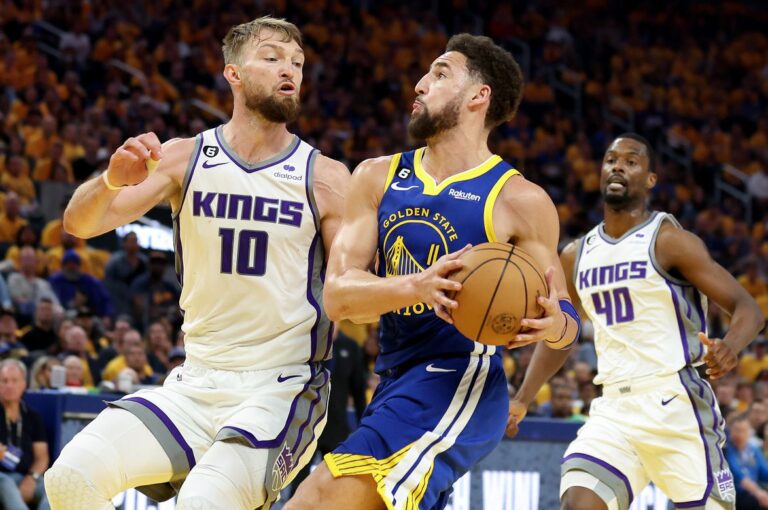The Powerful Impact of Sports Leadership on Team Success
Sports have an uncanny ability to unite people, creating unity within diversity. At the heart of any successful team lies a strong leader who binds the group with a shared vision and goal. Leadership on the field isn’t just about tactics; it’s about fostering the right mindset and environment for athletes to excel.
Understanding how various leadership styles can influence team performance helps appreciate the breadth of a leader’s role in sports. Leaders in sports set the tone for ambition, resilience, and camaraderie. They elevate individual and team performance by encompassing strategic guidance and emotional intelligence. Let us delve deep into the nuances of sports leadership and how it can transform teams, paving the path to victory and success.
Key Takeaways:
- Understand the crucial role sports leadership plays in driving team success.
- Explore various leadership styles and their effects on sports teams.
- Gain insights into how leadership can transform team dynamics and performance.
Understanding Sports Leadership
Sports leadership is a multifaceted role that significantly impacts team performance and morale. Sports speakers often underscore the essential role of leadership in turning individual abilities into collective triumph. A leader guides strategic decisions and personal motivations, unifying teams toward common objectives. Their influence transcends the field, impacting players’ personal growth and development. Leadership is about creating a nurturing environment where athletes feel understood and empowered to perform best. This role requires a balance between authority and empathy, enabling leaders to motivate and inspire their teams to reach new heights in their athletic endeavors.
Types of Leadership Styles in Sports
Effective leadership in sports can be categorized into various styles, each offering unique benefits and challenges. These styles can visibly affect team dynamics, with some leaders thriving in a collaborative environment while others excel in more structured settings. By understanding the intricacies of these styles, teams can select the type of leadership that best suits their needs, promoting success and a positive team culture. To appreciate their impact on team success, let’s examine these styles more closely.
Democratic Leadership in Sports
Democratic leadership engages team members in decision-making, fostering a sense of ownership and accountability. This approach can encourage innovation and flexibility, allowing each player to contribute ideas and strategies. Teams that follow democratic leadership often exhibit high morale, as players feel valued and heard. Such an environment enhances trust and makes team members feel integral to the team’s strategic goals. This form of leadership thrives in settings where collaboration and open communication are essential, particularly in diverse teams where various perspectives offer more excellent value.
Autocratic Leadership and Its Benefits
Autocratic leadership is characterized by quick decision-making and apparent authority. It often thrives in high-pressure environments where discipline and focus are essential. Successful autocratic leaders ensure every team member stays aligned with the team’s goals, mitigating distractions and enhancing performance. This leadership style can be particularly effective when quick, decisive action is necessary, such as during critical moments in high-stakes games. While it may seem rigid, autocratic leadership can bring impressive results when correctly applied to situations requiring robust and centralized command.
Transformational Leadership: Inspiring Teams to Achieve
The most impactful style, transformational leadership, aims to inspire and motivate athletes to exceed their limitations. These leaders focus on personal development and high-level motivation, encouraging players to strive for excellence for the team and personal fulfillment. Transformational leaders often create a transcendent team spirit, elevating performance and driving players to engage more deeply with the game and their self-improvement processes. The charisma of transformational leaders also fosters an environment where team members feel empowered to take the initiative, forming a resilient unit against challenges.
The Role of Communication in Sports Leadership
Effective communication is a cornerstone of successful leadership and is crucial in aligning team goals and strategies. Leaders employ communication techniques to ensure clear, motivational, and strategic dialogue with players, enhancing morale and performance. It involves active listening, constructive feedback, and transparency about goals and expectations. Communication skills are invaluable for any sports leader aiming to succeed, as they influence how players perceive and respond to leadership. Practical communication skills help bridge gaps and ensure everyone is on the same page, ready to act with unity and purpose.
Building Trust and Team Cohesion
Trust and cohesion are imperative for any successful team. Leaders build these elements by being consistent, transparent, and supportive. They create an environment where team members can depend on one another, fostering a robust and united team spirit that can withstand challenges and adversities. By prioritizing the well-being and growth of individual players, leaders help cultivate loyalty and a strong team ethos. The result is a team that performs well in games and functions smoothly off the field, reflecting the positive attributes of trust and cohesion that good leadership instills.
Leadership Challenges and Overcoming Them
Sports leaders face numerous challenges, including maintaining player discipline, handling conflicts, and maintaining team morale in tough times. Influential leaders use various strategies to address these hurdles, ensuring the team remains focused and positive. They employ problem-solving skills and inject enthusiasm and resilience into their teams, transforming potential setbacks into learning opportunities. Leaders must remain adaptive and open-minded, implementing proven team leadership strategies to navigate these difficulties effectively. This adaptability often sets apart successful leaders who can maintain performance in varying circumstances.
The Future of Sports Leadership
The evolving landscape of sports continually shapes the role of leadership, with technological advancements and new research offering fresh insights into coaching. As the sports world progresses, emerging leaders bring innovative ideas and practices, enhancing the field of sports leadership to ensure it meets the needs of contemporary athletes and teams. This includes fostering inclusivity, utilizing data analytics to guide strategies, and prioritizing mental health alongside physical fitness. These forward-thinking approaches help create a holistic environment where athletes can thrive, ensuring the future of sports leadership remains dynamic and effective in cultivating success as it meets new challenges.







